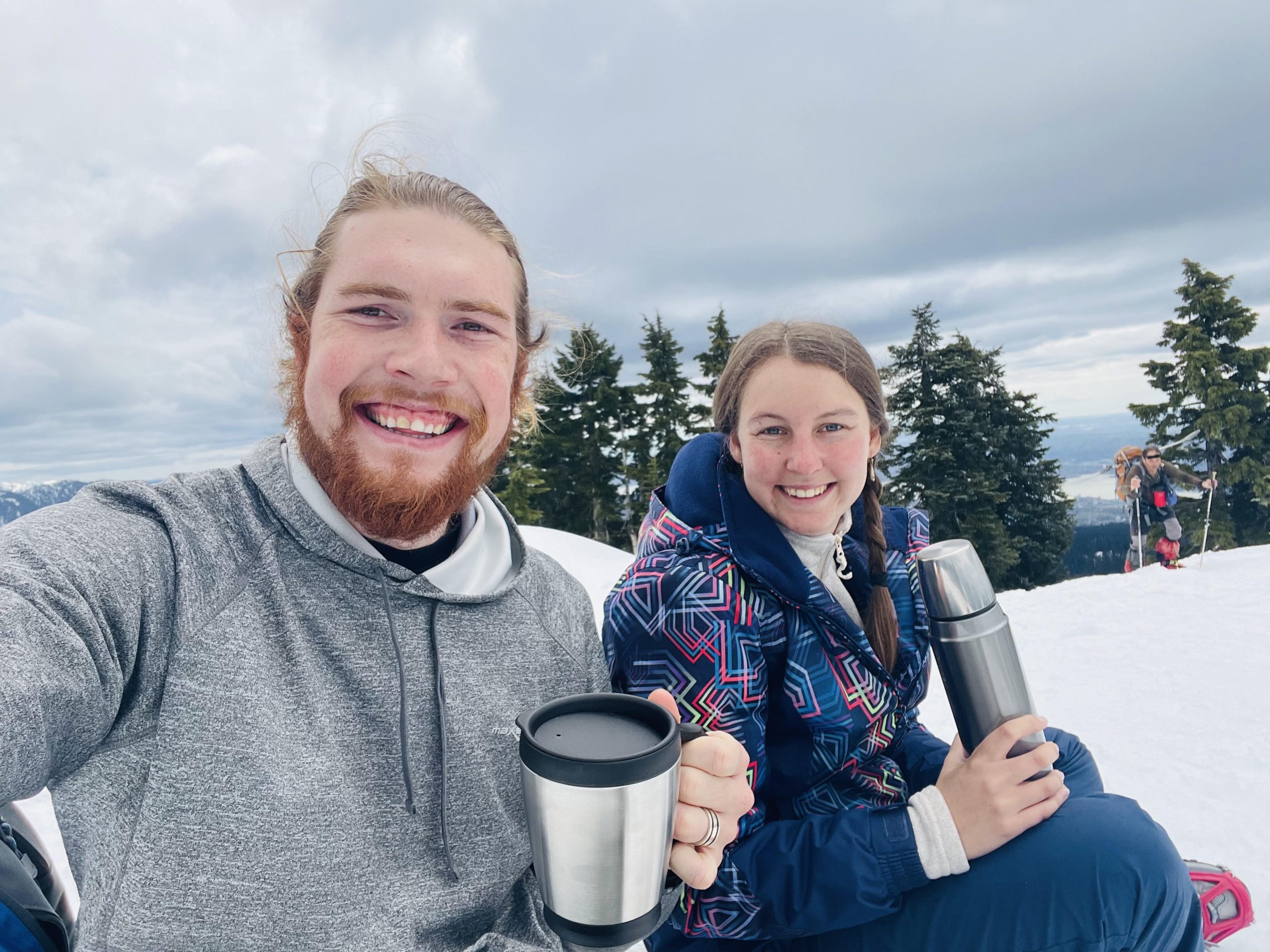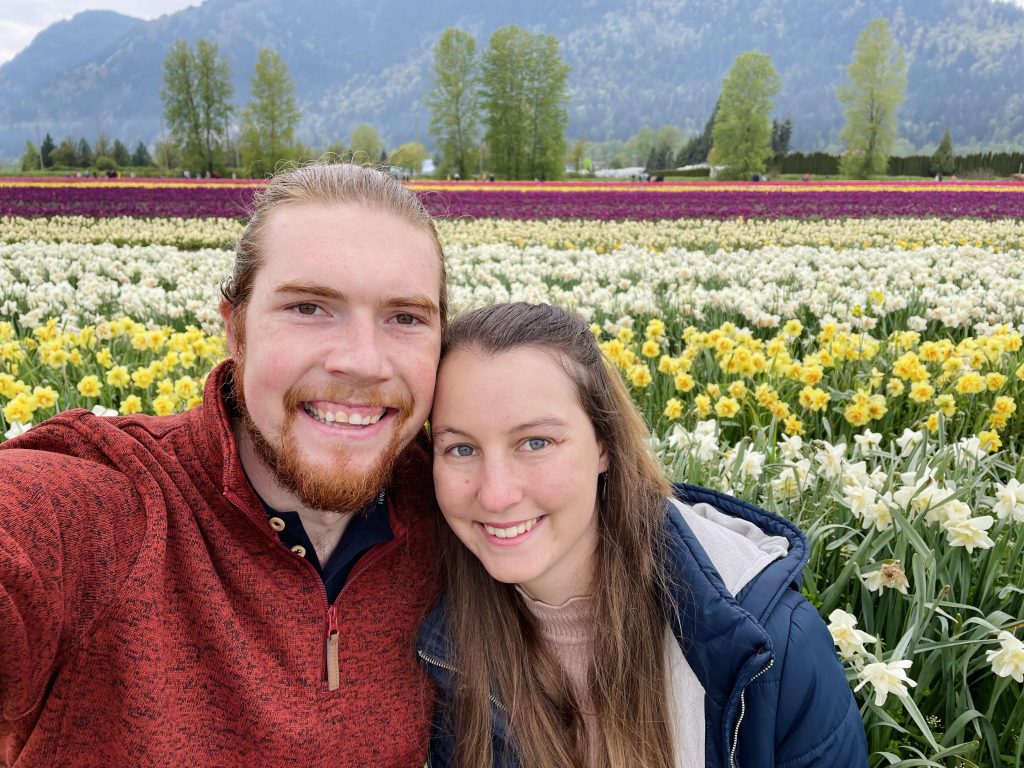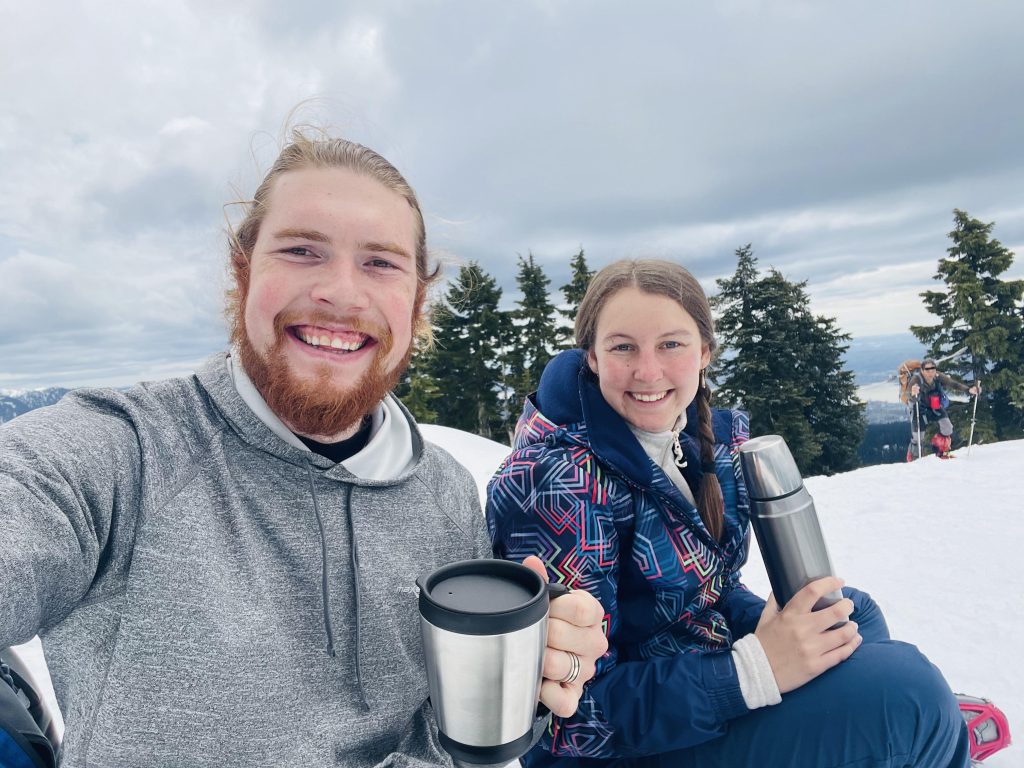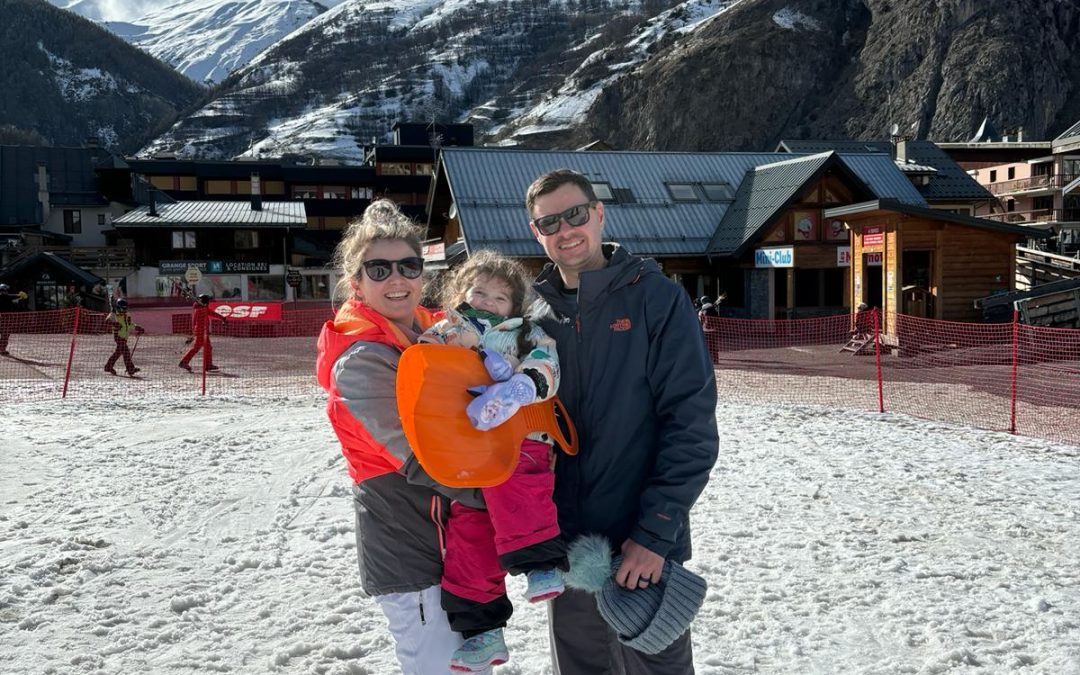Out and About is a column where we chat to people who are now living abroad or who used to live and work there. This week we chat to Catherina van Brakel, who is living in Canada with her husband.
Hi Catherina, it is always good to hear from Afrikaners living abroad. Tell us where in the world are you living, and why exactly there?
We (Werner and I) are living in Surrey, a suburb of Vancouver about 30 km from the city centre. We wanted to live in one of the so-called “high rise” buildings. Our apartment is on the 19th floor, with a fantastic view of the mountains on the one side and the lights of the city on the other side. The fact that we are not living in the city centre has several advantages. It is cheaper and less noisy, but we are still fairly centrally located. Half an hour’s drive in a northerly direction you start climbing the winding road up the snow-covered mountains. Half an hour’s drive in the opposite direction you suddenly find yourself on a beach.
You emigrated recently, tell us about your experience of the process of emigration.
The emigration process actually came as a surprise. Werner’s employer offered him an opportunity to be transferred to the Vancouver office. One day he just called from the study, “Would you like to move to Canada?” and I agreed without hesitation.
We were hardly involved in the visa process, because the employer dealt with it on our behalf. We did have to work through mountains of paperwork and we had to press on with administrative processes that tested one’s patience, such as getting police statements. Of course, Covid-19 was an important factor in the process. The new Omicron variant made its appearance as we were dealing with the visa applications. Our visas were approved, but two days before our passports were delivered to us, Canada closed its borders!
We were caught up in South Africa for a sunny December instead of experiencing a “White Christmas”. We gulped down our last vitamin D tablets in Ballito, visited relatives in Burgersdorp and Jeffreys Bay to say goodbye and then for old times’ sake went on a safari in the tent camp in the Camdeboo National Park outside Graaff-Reinet.
Following this breakaway, we sold most of our possessions through Facebook Marketplace. Oddly enough, reality finally hit me only when we sold our lounge couch. Suddenly there was an empty echo in the room, and I promptly burst into tears. Werner did not quite understand the reason for the tears, and he tried to console me: “Don’t worry! We’ll buy a nice new couch in Canada.”á
What was your biggest adjustment?
At first everything was new and strange, as could be expected, but we thought it would be exciting. Our first visit to the supermarket was a shock. All the products were unfamiliar. We were standing in front of the milk shelf, and it wasn’t a simple and quick choice between Clover and Douglasdale. We looked at the apples, but they were weighed in pounds and we did not know how much was in a kilogram. There are automated cashier stations, where we have to scan and pay for our products ourselves. For a South African, this was quite unfamiliar at first.
In our temporary apartment I realised just how different certain household appliances were. The light switches work the other way round, and it always feels as if the light is switched off, when in fact it is on. The one kitchen basin has a ghastly gaping opening called a “garburator”. Apparently, it is used to get rid of any leftovers after dinner. This feature makes a lot of noise when it is switched on, and I used that switch instead of the kitchen light switch only once.
Being without a car initially, we also had to get used to public transport. The SkyTrain is a very convenient way to reach a destination, and we can also use buses. We are adventurous people, and without a car we would not have had access to certain places or experiences, such as to go camping in the major provincial parks. We have been driving for almost ten years, but we still had to renew our learner licences. This is done on a machine similar to the automatic cashiers in supermarkets. When we passed our driver’s tests, a whole new world opened up for us.
The main adjustment therefore is in fact not one huge adjustment. It is best described as the everyday little things we used to do in South Africa without giving it a thought.
Are there any South African shops nearby where you can buy comfort food?
Some South African products are indeed available in the supermarkets, such as Mrs Balls Chutney, Nando’s Perinnaise and Cape Herb & Spice spices. There also are some South African shops in the surrounding areas, with names such as Serengeti Trading, Out of Africa Trading, and African Breese.
We came across a small shop in our area that sells a curious variety of Africa products. There we found a kind of maize meal that is slightly different from the meal we were used to in South Africa. Whenever we miss home, Werner makes krummelpap. But with his first attempt he had to phone his mother-in-law to find out how it should be done, because the YouTube video was not very helpful!
Werner also put his foot down when he realised that the price of boerewors here is roughly R350 per kilogram. Although we had never tried doing it before, he was determined to make our own boerewors. Having studied some YouTube videos, we bought the ingredients at the supermarket. For some reason we were unable to get the casing at any of the local butchers, but we finally did get it at an angling shop. It took us most of the afternoon to master the art of making boerewors, but we did it! Our first effort was tested on our gas braai, because using things like charcoal is not allowed here. In my opinion it was a huge success – even our friends were suitably impressed. And it was not only our friends who enjoyed it. We went camping recently, and we made the mistake of leaving some wors outside to thaw. Too late we discovered that a bird apparently had forced its beak through the plastic bag and devoured some of the wors.
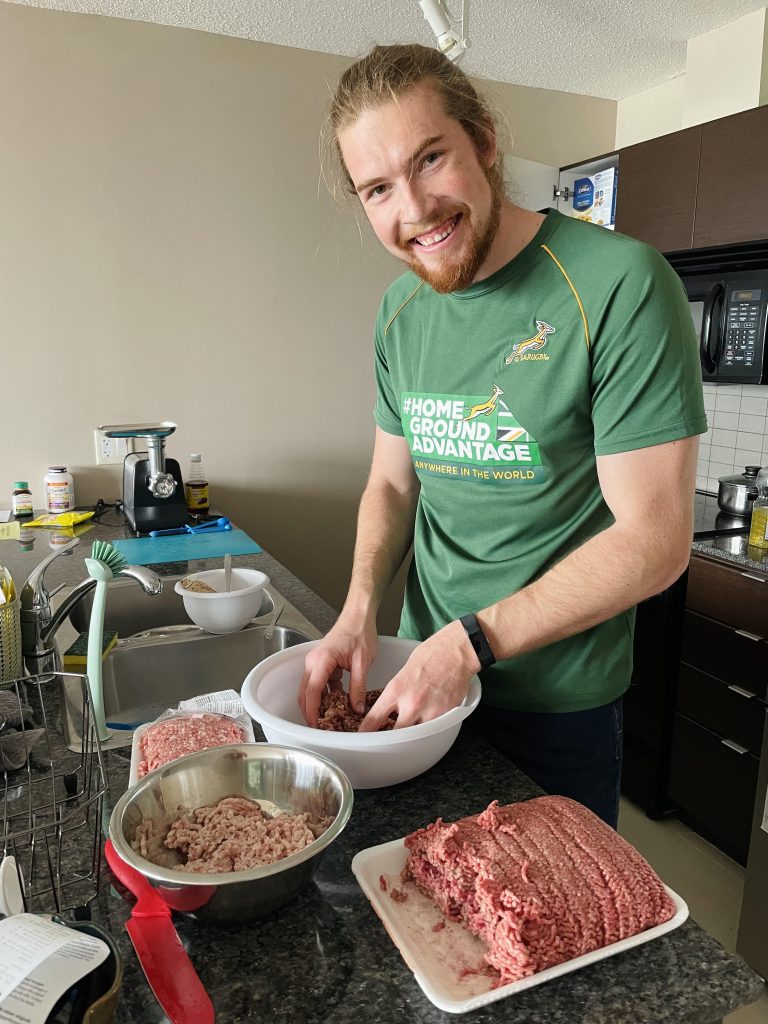
You recently went camping – did you take all your camping equipment with you or did you buy new equipment there?
We are privileged indeed because Werner’s firm organised quite a large crate to ship our things. Apart from sentimental things, such as a couple of my mother’s paintings, as well as kitchenware and some furniture, our golf gear and mountain bikes will be here soon. There was no space for cramming in the camping equipment as well. We had to buy the basic items here, even a small braai and an inflatable kayak. Maybe this is for the better, because the ship was still in Hong Kong some time ago, on its way here. Having been in Canada for five months, we are hoping to get the rest of our things next month.
But camping in Canada is no ATKV experience. We could still laugh about the bird stealing our wors, but bears are now reaching the end of their hibernation. We realised just how careful we had to be and decided to keep our food and other belongings locked up in the car. Otherwise one could return to find one’s tent in tatters.
The first night we also misjudged the low temperatures. Our new sleeping bags are supposed to withstand temperatures as low as -4 °C, but even though the temperature did not reach that level, we shivered throughout the night. The next morning we had to drive back to town to buy a thick blanket. We were able to get a good night’s rest the remainder of the weekend so we could enjoy the activities of the day.
The scenery of Cultus Lake Provincial Park is something to experience. The weather was lovely and we spent hours in the sun at the water’s edge. There are numerous hiking trails to choose from. We decided to tackle Teapot Hill, a route with hidden teapots and teacups. Like typical South Africans we had a braai every evening and enjoyed a drink at the fireside.
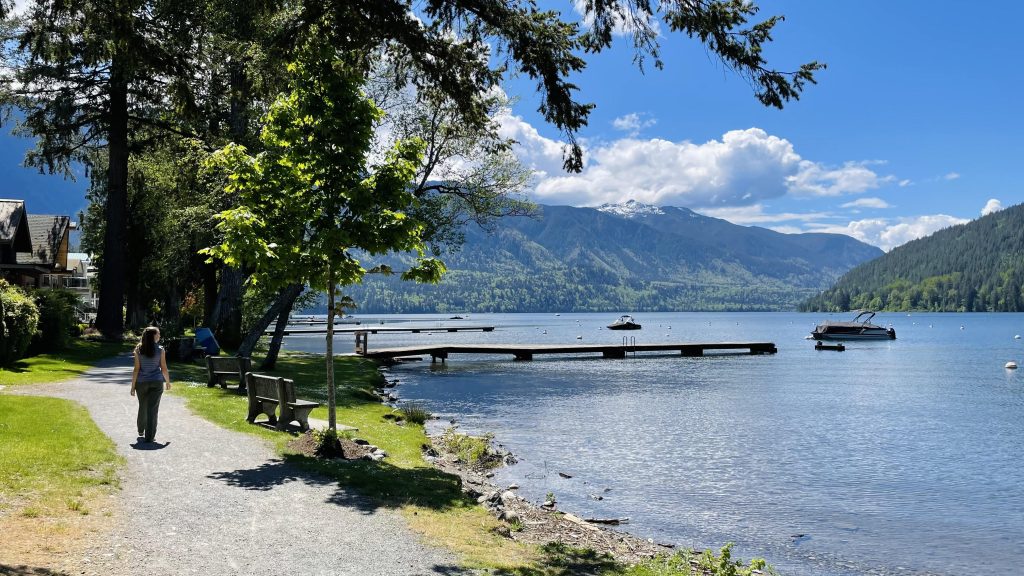
Tell us about the work you are doing and describe a typical day.
I arrived in Canada on a work visa and a work permit was issued to me at the airport. I was almost immediately able to send CVs to law firms in Vancouver. I was fortunate to quickly get a job as legal clerk, specialising in immigration. My employer is situated in Vancouver, but we deal with visa applications from prospective immigrants on behalf of a very big American company – actually an international company.
I am responsible for compiling the applications, as well as for communication with the employees and their managers to get supporting documents. I work from home for about half of the week, and on the other days I commute to the office by SkyTrain. Libraries here are very impressive. I regularly take out new books, even Deon Meyer, and I can sit and read peacefully en route to the office.
How did you join in and make friends in the process?
“When in Rome, do as the Romans do.” It is important to get involved in local activities as soon as possible. It is not called “Raincouver” without a reason, but one cannot hide from bad weather. We have tackled hiking trails where the snow almost covered the treetops, then topped it off with a flask of coffee at the peak. We attended the Chilliwack Tulip Festival, the biggest tulip festival in British Columbia, where literally millions of tulips are harvested every year. Various types of sporting events take place in large stadiums throughout the year. We just had to go and experience the atmosphere, and have already attended a lacrosse and a soccer match. We are also planning on attending a major international show jumping competition soon. I had weekly riding lessons in South Africa, and although it is four times more costly here, I went ahead and joined riding stables, where I got to know fellow horse lovers.
Canada is absolutely massive, but in actual fact the world is small. We have befriended people through a Facebook group, South Africans living in Vancouver, only to discover that we are distant relatives – kind of. The same group also made it possible for us to meet someone else who went to school with my cousin. Werner also made contact with another South African at his firm, and he quickly drew us into their circle of friends. Birds of a feather flock together, and once South Africans become aware of new South Africans here, they are quickly invited for a braai.
What do you miss most about South Africa?
These days it is easier to maintain contact with relatives and friends abroad through social media. WhatsApp video calls make it much easier to cope with homesickness. Unfortunately, this is not the same as personal contact. We miss the company of our people, quickly dropping in for coffee or a braai, and knowing that your support system was always within reach. One evening, a somewhat moody Werner was sitting on the couch (see, he did buy me a beautiful couch here in Canada) while we were deciding what to prepare for dinner. “Now we have to prepare food for an extra evening, while in South Africa we could simply go to your mother for dinner!” he complained.
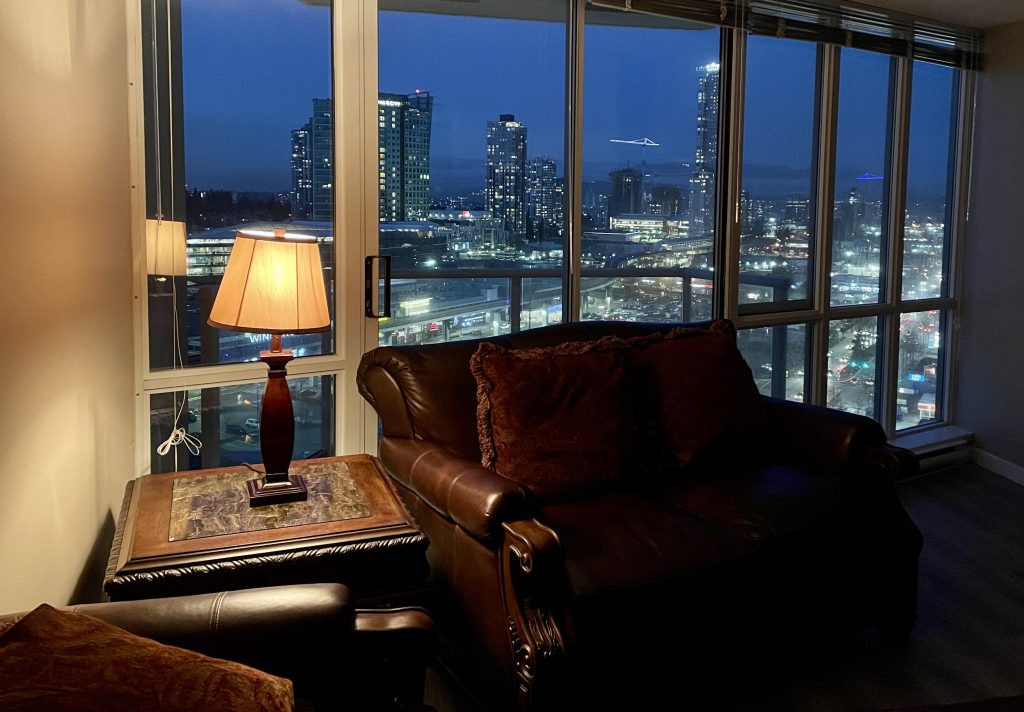
Write to us
Do you live abroad or have you recently returned? You can also write an Out and About column for us. Send an email to wereldwyd@afriforum.co.za and we will send you the questions you can answer for us.

